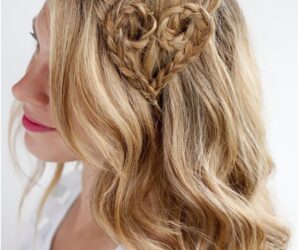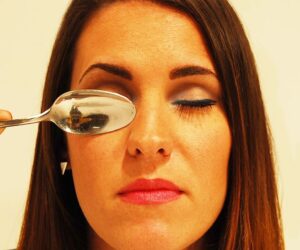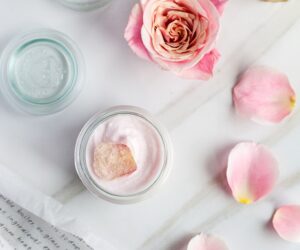Healthy hair and skin are more than just markers of beauty; they are vital indicators of overall well-being. The condition of your hair and skin reflects your internal health and can significantly impact your self-esteem and confidence. This comprehensive guide will explore effective ways to treat various hair and skin disorders, from natural remedies to professional treatments, ensuring you maintain a radiant appearance and robust health.

Understanding Common Hair and Skin Disorders
Before diving into treatment options, it’s essential to understand some of the most common hair and skin disorders that people face:
Hair Disorders
- Alopecia: Hair loss that can affect the scalp or entire body.
- Dandruff: Flaky, itchy scalp often caused by dry skin or a fungal infection.
- Seborrheic Dermatitis: A chronic form of eczema affecting the scalp, face, and upper body.
- Trichotillomania: An impulse control disorder characterized by the urge to pull out one’s hair.
Skin Disorders
- Acne: A condition where hair follicles become clogged with oil and dead skin cells, causing pimples, blackheads, and inflamed red lesions.
- Eczema: A group of conditions that cause the skin to become inflamed or irritated.
- Psoriasis: A chronic autoimmune condition that causes the rapid buildup of skin cells, leading to scaling on the skin’s surface.
- Rosacea: A chronic condition that causes redness and visible blood vessels in your face.
Now, keep in mind you can easily find out more about all of these disorders. Whether it’s hair pulling, psoriasis, or acne, you can read more about them online. That way, you’ll know exactly what you’re dealing with and can make informed decisions about your treatment.
Effective Natural Remedies for Hair and Skin Disorders
Natural remedies can be a gentle and cost-effective way to manage hair and skin disorders. Here are some proven solutions:
For Hair Disorders
- Aloe Vera: Known for its soothing properties, aloe vera can reduce scalp inflammation and dandruff.
- Coconut Oil: Rich in fatty acids, coconut oil can strengthen hair and reduce protein loss.
- Green Tea: Contains antioxidants that can prevent hair loss and promote growth.
- Apple Cider Vinegar: Balances the scalp’s pH and removes buildup; it is effective against dandruff.
For Skin Disorders
- Tea Tree Oil: Has anti-inflammatory and antimicrobial properties, making it useful for treating acne.
- Honey: A natural humectant with antibacterial properties; great for moisturizing and healing the skin.
- Turmeric: Contains curcumin, which has potent anti-inflammatory and antioxidant properties, effective in treating eczema and psoriasis.
- Oatmeal: Provides natural relief for eczema and other itchy skin conditions.
The Role of Diet and Lifestyle Changes in Treating Hair and Skin Disorders
Your diet and lifestyle choices play a crucial role in the health of your hair and skin. Here are some tips to help you make the right choices:
Diet
- Hydration: Drink plenty of water to keep your skin hydrated and your hair strong.
- Balanced Diet: Ensure your diet includes plenty of fruits, vegetables, lean proteins, and healthy fats.
- Supplements: Consider supplements like biotin, vitamin E, and omega-3 fatty acids, which support hair and skin health.
Lifestyle
- Stress Management: High stress levels can exacerbate conditions like acne and alopecia. Practice stress-reducing activities such as yoga, meditation, and regular exercise.
- Sleep: Adequate sleep is essential for skin repair and hair growth. Aim for 7-9 hours per night.
- Hygiene: Maintain good hygiene by washing your face twice daily and shampooing your hair regularly to avoid buildup and infections.
Professional Treatments and Therapies for Severe Hair and Skin Conditions
When natural remedies and lifestyle changes aren’t enough, it may be time to seek professional treatments. Here are some options:
Hair Treatments
- Scalp Micropigmentation: A non-surgical procedure that creates the illusion of fuller hair.
- Hair Transplants: Surgical procedures that move hair follicles from one part of the body to the scalp.
- Laser Therapy: Stimulates hair growth and improves blood circulation to the scalp.
Skin Treatments
- Chemical Peels: Use acids to exfoliate damaged skin layers, promoting new skin growth.
- Microneedling: Involves tiny needles that puncture the skin to stimulate collagen production.
- Prescription Medications: Dermatologists may prescribe topical or oral medications to treat conditions like severe acne or psoriasis.
Prevention Tips to Maintain Healthy Hair and Skin
Prevention is always better than cure. Here are some tips to help you maintain healthy hair and skin:
Hair Care Tips
- Avoid Heat Styling: Excessive use of hairdryers, straighteners, and curling irons can damage hair.
- Use Mild Shampoos: Harsh chemicals can strip your hair of its natural oils.
- Regular Trims: Trimming your hair every 6-8 weeks can prevent split ends and breakage.
Skin Care Tips
- Sun Protection: Always use sunscreen with at least SPF 30 to protect your skin from harmful UV rays.
- Moisturize: Keep your skin hydrated with a suitable moisturizer for your skin type.
- Gentle Cleansing: Use mild cleansers to avoid stripping your skin of its natural oils.

Treating hair and skin disorders effectively requires a multi-faceted approach. From understanding the root cause of the problem to exploring natural remedies and professional treatments, this ultimate guide provides a comprehensive look at maintaining healthy hair and skin. Remember, consistency is key—whether you’re following a skincare routine, taking dietary supplements, or undergoing professional treatments. By taking proactive steps and adopting a holistic approach, you can achieve and maintain the radiant skin and luscious locks you’ve always desired.



